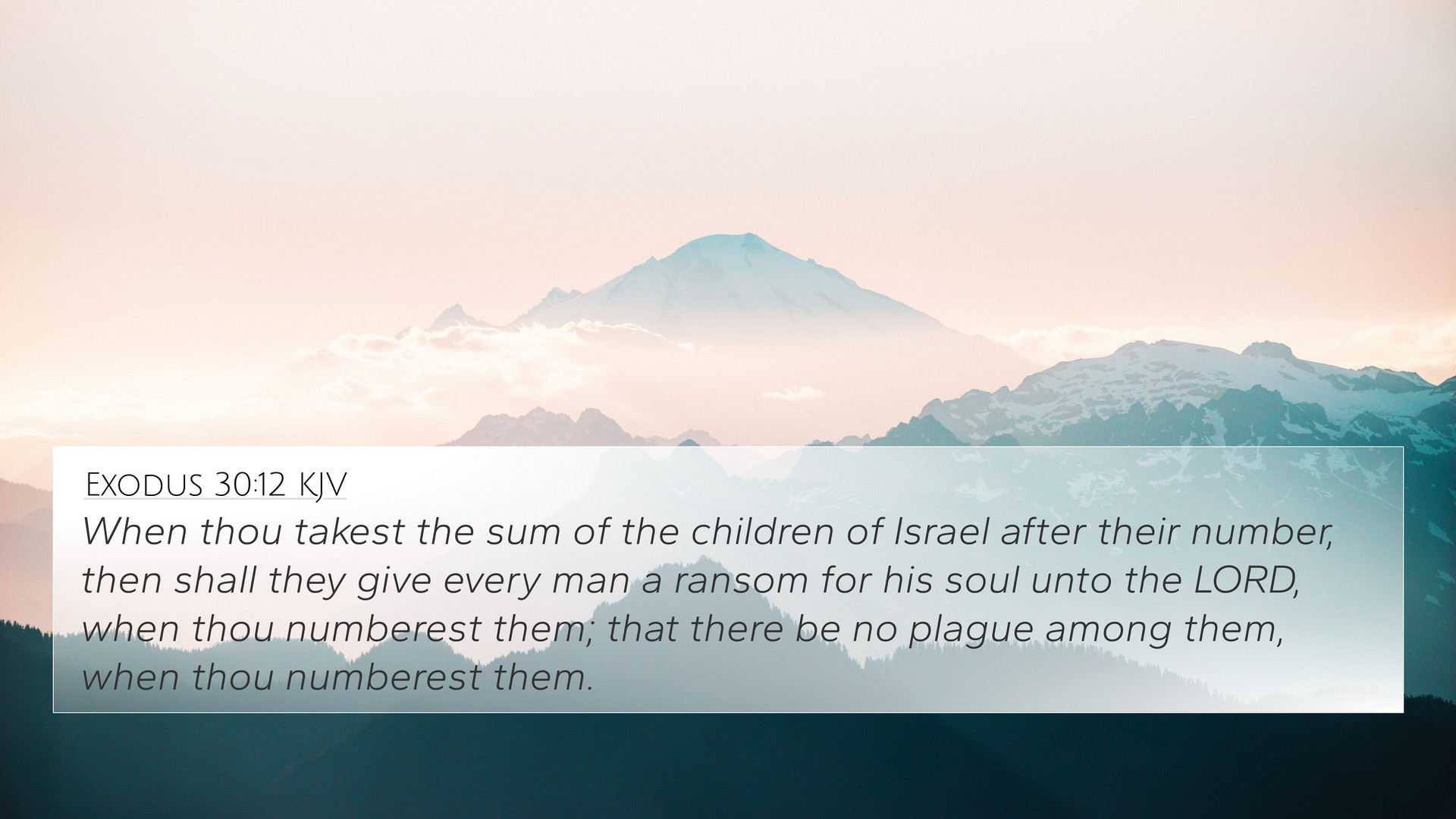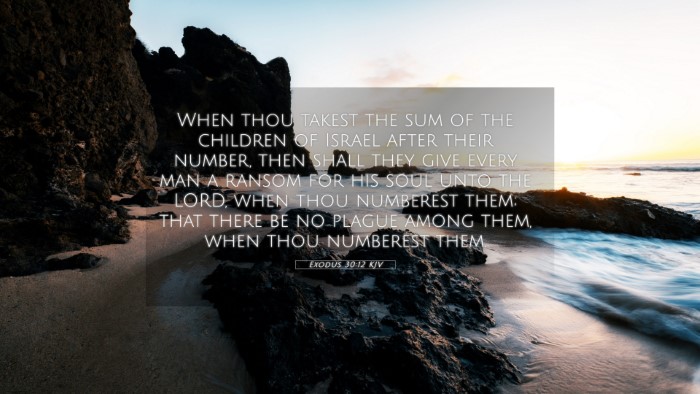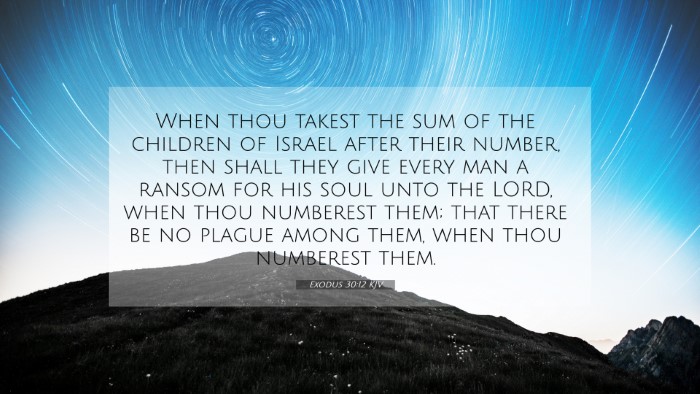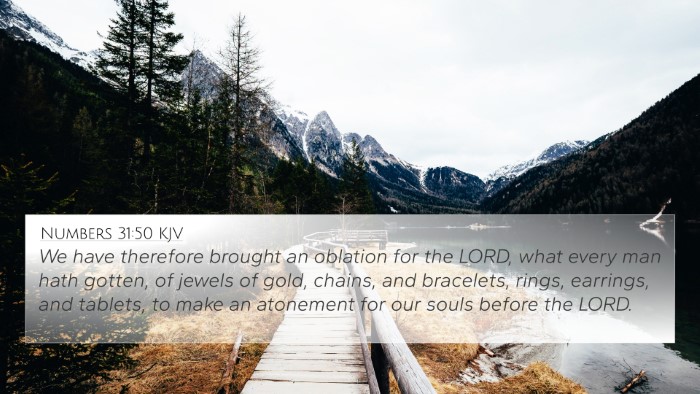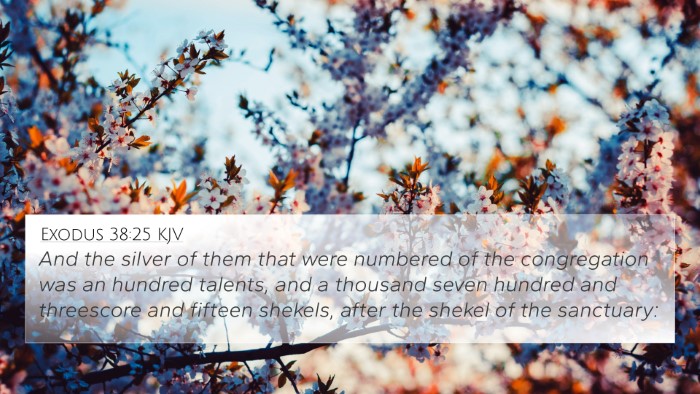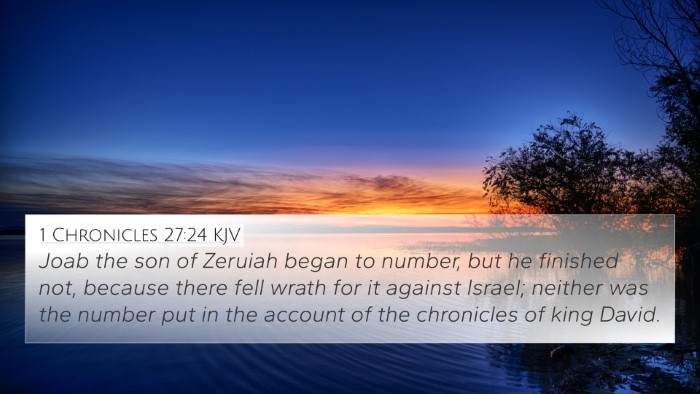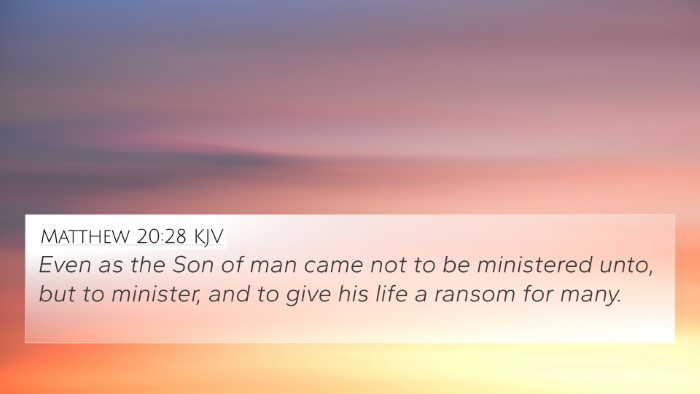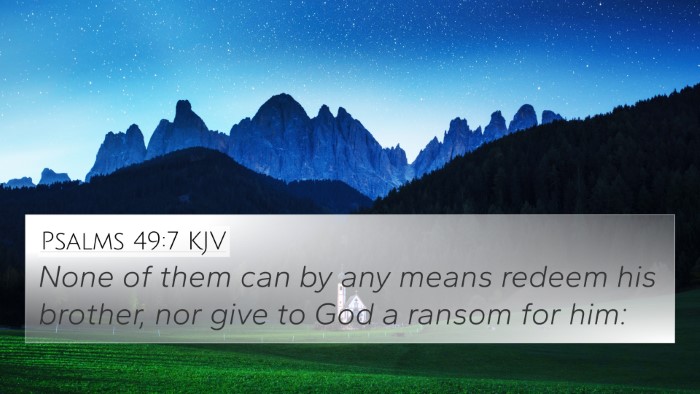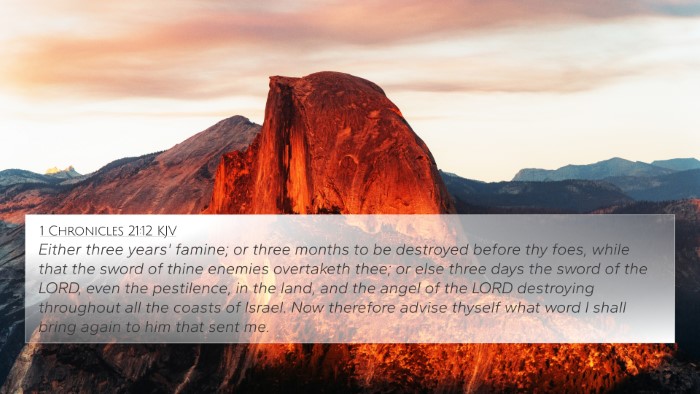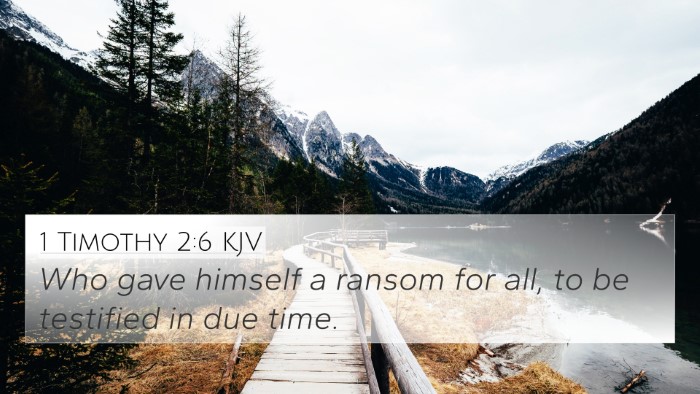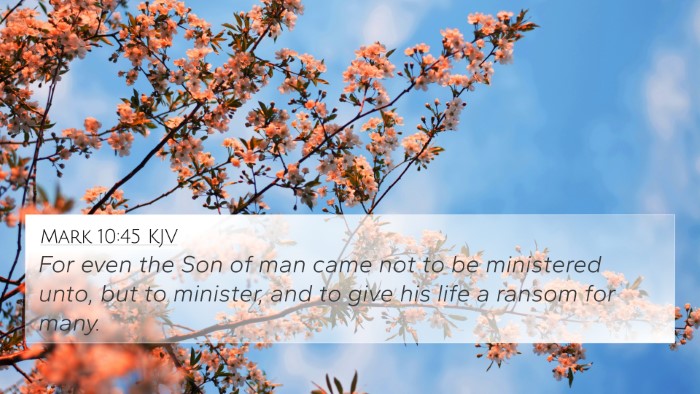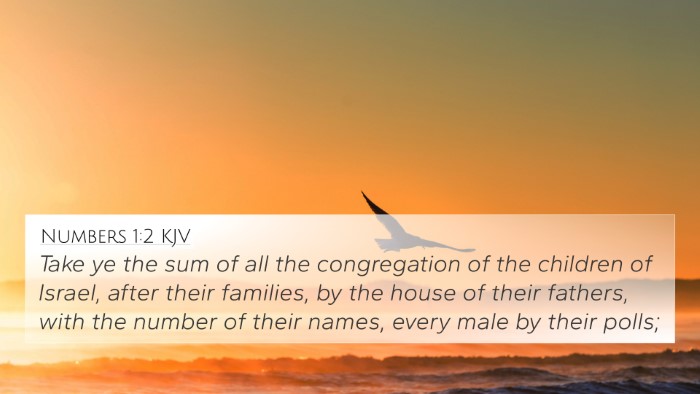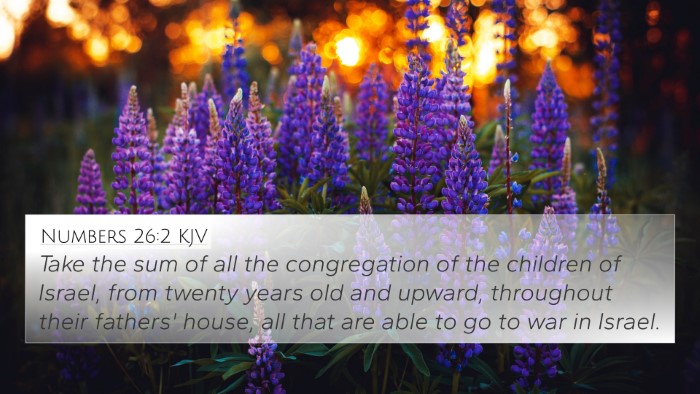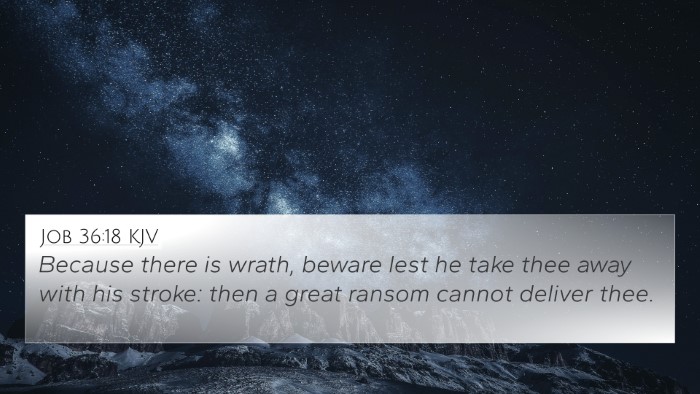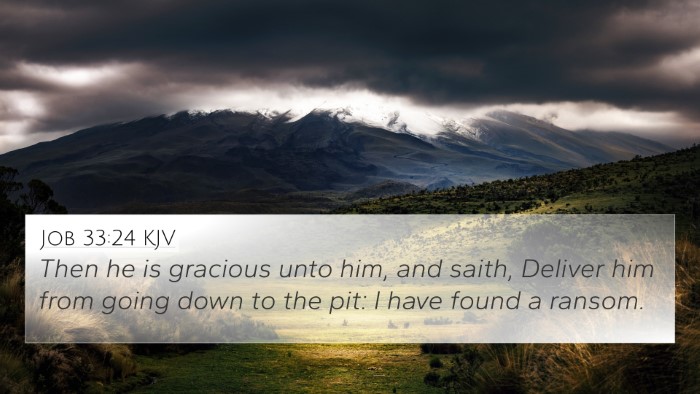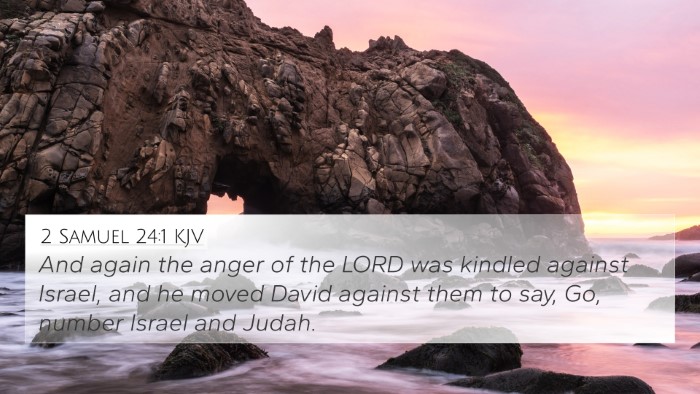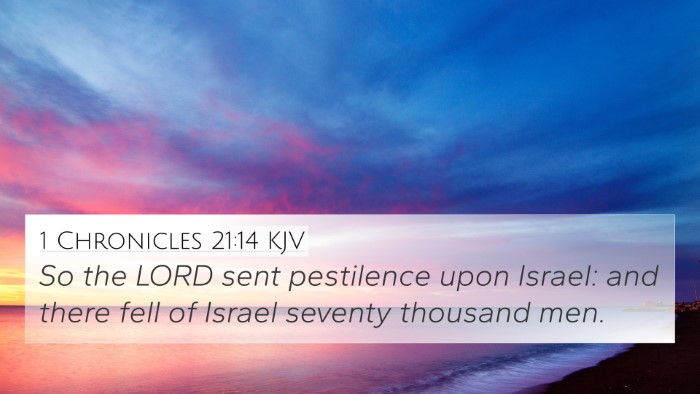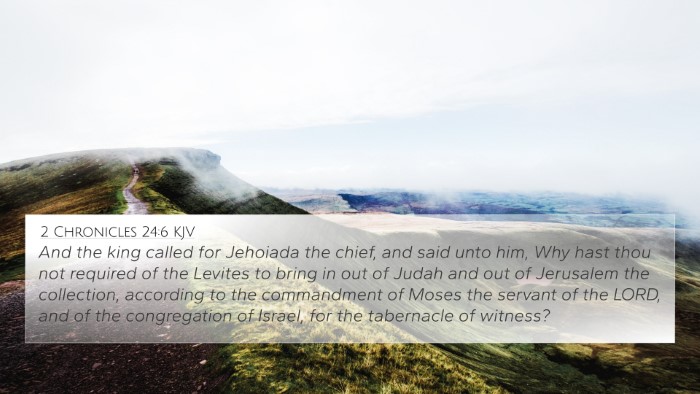Bible Verse Interpretation: Exodus 30:12
Verse Reference: Exodus 30:12 - "When you take the census of the children of Israel for their number, then every man shall give a ransom for himself to the Lord, when you number them, that there may be no plague among them when you number them."
Summary of Meaning
Exodus 30:12 addresses the procedure required during the census of the Israelites. The command is clear: each individual must provide a ransom to ensure their safety and atonement before God. This act serves not only as a means of maintaining order but also as a reminder of the divine responsibility of the Israelites to be counted among God's people in a manner that is respectful and accountable.
Commentary Insights
- Matthew Henry's Commentary:
Henry emphasizes the significance of atonement and the principle of substitution. The ransom signifies the acknowledgment of one's value before God and the necessity of redemption. He notes that this practice underscores the seriousness of God's presence among the people, making them accountable and aware of their standing before Him.
- Albert Barnes’ Notes:
Barnes highlights the practical aspects of this commandment. The obligation to pay a ransom is presented not merely as a financial requirement but as a spiritual principle. It signifies the distinction between God's grace and the responsibility of the people to recognize their need for redemption and protection against divine judgment.
- Adam Clarke's Commentary:
Clarke discusses the broader implications of the ransom. He articulates that this system of offering reflects a deeper theological truth: our lives and souls are of great value, worthy of redemption. The census thus serves a dual purpose - it counts the people while also reminding them of the cost associated with their covenant relationship with God.
Connections Between Bible Verses
This verse relates to several significant scriptural themes and can be cross-referenced with various other passages, providing a broader understanding of its implications:
- 1 Peter 1:18-19: This passage speaks of redemption through the precious blood of Christ, establishing the New Testament link to the ransom concept found in Exodus 30:12.
- Matthew 17:24-27: The conversation of Jesus about the temple tax can be contrasted with the ransom as both concern duty and obedience to God amidst the community's structure.
- Romans 3:23-25: Paul discusses atonement and righteousness, which aligns with the themes of redemption and ransom in Exodus.
- Exodus 32:30-35: This passage further explores themes of sin, atonement, and intercession, mirroring the necessity for ransom in a community.
- Hebrews 9:22: This verse outlines the necessity of blood for the atonement of sins, mirroring the ransom theme in Exodus.
- Matthew 5:23-24: Here, Jesus emphasizes reconciling with others as part of our obligation before God, reflecting a communal responsibility akin to that in Exodus 30:12.
- James 4:7-10: This passage emphasizes humility and submission to God, paralleling the required ransom that acknowledges God’s sovereignty and authority over each individual and the community.
Thematic Connections
Overall, Exodus 30:12 connects with broader themes of atonement, community responsibility, God's judgment, and redemption:
- Atonement: The idea of paying a ransom as a form of atonement for sin and a means of reconciling with God.
- Redemption: Reflects on the overarching theme of saving grace throughout Scripture.
- Community Accountability: Establishes the importance of unity and collective responsibility among God's people.
- God’s Protection: Signifies how obedience to God’s commands can shield the community from plague and judgment.
- Relationship with God: Illustrates the ongoing dialogue between humanity and the Divine regarding sin and atonement.
Conclusion
In Exodus 30:12, the call to pay a ransom signifies much more than a financial transaction; it reflects the need for accountability, the recognition of one’s spiritual state, and the implications of being in relationship with a Holy God. Through cross-referencing with other Scriptures, one can appreciate the profound themes of redemption present throughout the Bible, linking the Old Testament with the New Testament. Understanding these connections deepens one’s insight into Biblical teachings and God's overarching plan for His people.
Further Study Suggestions
Your personal study of Exodus 30:12 can be enriched by using tools for Bible cross-referencing. Here are some methods you could explore:
- Bible Concordance: Utilize a concordance to find other verses related to atonement and redemption.
- Bible Cross-Reference Guide: Investigate guides that provide thematic connections across various books of the Bible.
- Scriptural Cross-Referencing: Engage in a study that cross-references themes between the Old and New Testaments for a comprehensive understanding.
- Cross-Referencing Bible Study Methods: Implement methods focusing on comparing narratives, teachings, and theological points across Scripture.
